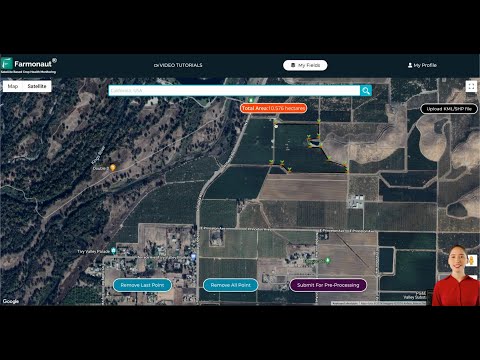7 Urgent Trends in California’s Political Leadership Crisis
Focus Keyword: California political leadership crisis
As we survey the current landscape of California’s political leadership, we are confronted by complex and urgent trends shaping the future of both our state and the nation. From the halls of Congress in Washington to the statehouse in Sacramento, California has played a defining role in the evolution of American political leadership. Yet, we find ourselves at an inflection point—a crossroads between renaissance and decline.
In this comprehensive analysis, we bring our collective experience and unwavering commitment to public service to examine the seven most critical trends threatening California’s ability to lead. These intersecting issues span everything from hyper-partisanship to government spending and deficit crises, the decline of civic education for students, weakening trust in government officials, struggles in inspiring public service, and the shifting economic landscape that demands new approaches to leadership and policy.
Along the way, we draw on California’s rich history in Congress, lessons from decades of governance, and insights from renowned public servants such as Leon Panetta—whose story from Seaside, Monterey Bay, to the nation’s highest offices is both a warning and an inspiration. We invite you to join us in understanding these trends and exploring practical strategies for change, including how innovative technology, like Farmonaut’s precision agriculture solutions, is empowering our communities in new ways.
Comparative Trends Table: 7 Urgent Trends in California’s Political Leadership Crisis
To provide clarity on the scale and implications of the challenges facing California, we present a comparative analysis table of the seven most urgent trends disrupting American political leadership and shaping the future of California’s leadership in government, policy, and the economy:
| Trend Name | Brief Description | Estimated Impact (Score/Value) | Historical Context (Year/Period) | Implications for California Leadership |
|---|---|---|---|---|
| Intensifying Partisanship | Polarized party politics overriding consensus and progress | +40% polarization in Congress (2000–2024 est.) | Sharp increase since early 2000s | Reduced legislative output, inability to address key state challenges |
| Erosion of Bipartisan Policy | Decline in bipartisan solutions despite past effectiveness | -60% drop in bipartisan bills (last 20 years) | Both parties stalemated post-2000 | Gridlock on budget, infrastructure, and education reforms |
| Government Spending & Deficit Crisis | Expanding state deficit and unsustainable government spending | $32B deficit (2023 est.) | Recurring budget shortfalls since 1980s | Threatens state credit rating, public services, and economic growth |
| Waning Civic Education | Reduced focus on civic education for students and young citizens | -35% funding for civic programs (last decade) | Civic literacy decline post-2010 | Less engagement in public service and lower voter participation |
| Declining Trust in Government Officials | Perceived lack of integrity and public service ethos | Only 28% trust in state government (2022 survey) | Long-term trend since 1970s Watergate | Crisis of legitimacy; challenges in leadership recruitment |
| Challenges Inspiring Public Service Careers | Fewer students and citizens see public service as attractive | 49% students pessimistic about better life (2023 poll) | Recent polling from Panetta Institute | Shortage of new leaders; skills gap in government institutions |
| Rapidly Changing Economy | Need for adaptive leaders in an innovation-driven economic environment | +85% job transformation projected by 2030 (AI/tech adaptation) | Innovation surge since late 2010s | Leadership must bridge policy, tech, and workforce transitions |
1. Intensifying Partisanship and Political Divisions in California and National Congress
California, known for sending some of the most influential leaders to Congress and shaping major policies that define American political leadership, now finds itself ensnared in the web of intensifying partisanship. Over the last two decades, the divisions among parties have deepened—threatening the very foundations of our democracy.
Focus Keyword: California Political Leadership Crisis
- Party politics has begun to overshadow the interests of California citizens, with public officials often prioritizing partisan victories over consensus-building.
- This reality impacts everything from budget appropriations to education policy, resulting in legislative gridlock and discouraging civic engagement.
- Veteran public servants, including Leon Panetta, have expressed deep concern over the inability of elected leaders to compromise, collaborate, and move forward meaningful legislation.
Our history of congress in California was built on the legacies of leaders who thrived on finding common ground and who recognized the importance of balancing conflicting interests. Today, bridging our political divisions is not just an aspiration but an urgent requirement for effective governance, economic stability, and sustained innovation.
2. Erosion of Bipartisan Policy and the Impact on State and National Governance
California’s historic prominence in advancing bipartisan policy—from environmental conservation to social reform—is eroding. Analysis shows a 60% decline in bipartisan bills passed by Congress over the past 20 years. This trend endangers our capacity to address complex issues such as the deficit, public education, and infrastructure modernization.
- Bipartisanship once enabled lawmakers to work across the aisle, especially in committee leadership roles, to solve problems such as agricultural reform—critical for California’s Monterey Bay region and beyond.
- The stalling of key legislation impacts vital sectors including agriculture, technology, and education, placing California at a disadvantage compared to other states.
Our era’s challenge is to restore a spirit of collaboration, drawing inspiration from public service careers in America in which consensus and civility once prevailed. This remains essential for maintaining our state’s leadership role and ensuring broad-based progress across all sectors.
3. Looming Government Spending and Deficit Crisis: A Reality Check for California’s Future
No discussion on California political leadership is complete without an honest reckoning with the state’s growing government spending and deficit crisis. With a staggering $32 billion deficit recorded in 2023, California faces tough policy choices that will decide its ability to provide quality public services, invest in the future, and keep its economy strong.
- Persistent budget deficits have haunted California for decades, exacerbated by a reluctance to enact tough fiscal reforms in the interests of future generations.
- When bipartisan solutions were possible—as during Leon Panetta’s time, who co-authored balanced budget packages with both Democratic and Republican presidents—the state saw marked improvements in fiscal health.
- Today, the lack of consensus on tax reform, spending discipline, and deficit reduction threatens long-term economic competitiveness and hinders recovery from economic downturns.
For California to maintain its stature as a model for American democracy and economic innovation, we must confront the crisis with resolve and a willingness to enact sustainable reforms. If left unchecked, today’s spending patterns will only deepen the crisis, making future recoveries harder.
Explore resource monitoring tools supporting sustainable government and agricultural spending: Farmonaut Fleet Management enables cost-effective operations and data-driven decision making across public and private sector fleets.
4. Waning Civic Education Among the Next Generation: The Foundation of Leadership at Risk
Our democracy is only as robust as the civic education for students who will shape its future. California’s leadership crisis is intensified by a perilous decline in investment and attention to civic learning. Over the last decade, funding for civic education programs has dropped by 35% statewide, directly impacting our students’ understanding of government, law, and their civic duties.
- Informed, engaged citizens are the cornerstone of healthy governance and transformative public policy.
- Without a new generation equipped to critically assess policy, hold leaders accountable, and contribute to the common good, California risks a deeper decline of American democracy.
- Institutions like the Panetta Institute for Public Policy at Cal State Monterey Bay offer a beacon of hope, providing immersive education on public policy and university education—yet the challenge is vast and urgent.
Embedding comprehensive civic curricula at every educational level—and ensuring equal access across the state—will be pivotal for nurturing tomorrow’s leaders. As we teach about policy, budget discipline, and the responsibilities of Congress, we plant the seeds of sustainable leadership.
Learn how technology enhances data-driven education and leadership: Farmonaut Product Traceability fosters transparency and accountability in both agriculture and governance through blockchain-secured information.
5. Decline in Trust in Government Officials: Crisis of Integrity and Public Service
Trust in government officials serves as the bedrock of effective leadership. Surveys now reveal that only 28% of Californians trust their state government to do what is right—a historic low, and a signal of profound concern. This skepticism undermines the legitimacy of leaders, discourages public service, and stymies policy innovation.
- Past leaders, including those whose stories light up the walls of the Panetta Institute in Seaside, Monterey Bay, were celebrated for integrity, transparency, and an unwavering commitment to constituent service.
- The erosion of this ethos—marked by scandals, polarizing rhetoric, and perceived self-serving conduct—has fueled apathy, cynicism, and even disengagement among citizens and students alike.
- Rebuilding trust will require renewed investment in ethics, clear accountability standards for all officials, and celebrating leaders who exemplify consensus-building and working across party lines.
Restoring faith begins with acknowledging past failings and bravely adopting governance reforms that rededicate us to the principles of honesty, service, and bipartisan achievement.
Learn more about Farmonaut Carbon Footprinting—an innovative approach to tracking sustainability and transparent reporting, applicable in both agriculture and public service.
6. The Challenge of Inspiring Future Public Service Careers in America
A healthy democracy relies on the energy and ideals of its next generation. Yet surveys show that a majority of California students and young citizens no longer believe in the upward mobility or fulfillment possible through public service careers in America. Only 51% believe they can achieve a better life than their parents.
- The historic mission of serving the public—so powerfully exemplified by California leaders—faces an “aspiration gap,” where students and emerging professionals question the value and feasibility of a career in government.
- This trend is fueled by high-profile policy failures, persistent gridlock in Congress, and a perceived lack of modern professional development avenues.
- Addressing this challenge begins with educational investment, mentorship programs led by respected officials, and renewed emphasis on the rewards of meaningful public impact.
Farmonaut Large Scale & Admin Farm Management allows emerging leaders in agriculture and policy to model best practices, leverage real-time data, and gain tangible skills—paving the way for future-forward public service careers.
7. California’s Leadership in a Rapidly Changing Economy and the Future of American Innovation
California remains America’s innovation engine—home to Silicon Valley, cutting-edge agriculture, and an evolving gig economy. But rapid technological disruption, evolving workforce demands, and global competition require adaptable, visionary leadership.
- The traditional skill sets required for government officials to navigate policy, spending, and regulation are shifting—with AI, data science, and sustainability now core to effective governance.
- State and federal lawmakers must anticipate disruption, craft forward-thinking policies, and foster educational ecosystems that keep pace with change.
- Our ability to preserve California’s leadership will depend on how well we empower new generations to merge public service with science, technology, and entrepreneurship.
Modernization of public policy and university education programs, adoption of Farmonaut’s Jeevn AI Advisory System for data-driven insights, and a willingness to pilot cutting-edge solutions are imperative.
Empowering California Agriculture: Farmonaut’s Advanced Solutions
California’s agricultural sector—spanning the lush fields of Monterey Bay to the fertile valleys of the Seaside region—relies on forward-thinking, accessible technology. Farmonaut brings advanced, satellite-based farm management tools to farmers, agribusinesses, and government institutions statewide.
- Satellite Crop Health Monitoring: Delivering real-time NDVI and soil moisture insights for informed farm management.
- AI-Based Jeevn Advisory: Personalized recommendations drive productivity, resource efficiency, and sustainability.
- Blockchain Traceability: Ensure end-to-end transparency—vital for food safety, export reliability, and market trust.
- Fleet & Resource Management: Optimize logistics and reduce operational costs for agricultural leaders at scale.
- Carbon Footprinting: Equip farms and agribusiness with the tools needed to comply with environmental standards and reduce environmental impact.
We are committed to putting innovation within reach for every farmer, policymaker, and public servant—equipping California’s workforce for the demands of a modern, competitive economy.
Developers and institutions can harness Farmonaut’s robust API and get started instantly with our API Developer Docs—scaling sophisticated monitoring and advisory solutions across fields, counties, and entire states.
FAQ: California Political Leadership, Civic Education, and Farmonaut Solutions
What are the main reasons behind California’s current political leadership crisis?
The crisis stems from intensifying partisanship, diminishing bipartisan cooperation, escalating government working deficit, declining investment in civic education, reduced trust in officials, fewer young people pursuing public service, and a rapidly changing economy that demands new policy approaches.
Why is civic education so critical for California’s future?
Civic education teaches students government structure, law, and their rights/responsibilities as citizens. Without it, the foundation for informed voting, community engagement, and ethical leadership weakens, risking decline in democratic participation and effective policymaking.
How does California’s government spending deficit affect public policy?
High deficits restrict government flexibility to invest in infrastructure, education, and social programs. They also threaten the state’s credit, leading to more expensive borrowing and less resilience against future economic crises. Budget discipline remains a top leadership challenge.
What role do bipartisan policies play in strengthening California and American democracy?
Bipartisan policies foster collaboration, compromise, and sustainable solutions that benefit all citizens. Their erosion leads to gridlock, less responsive government, delayed reforms, and increased public cynicism—a trend we must urgently reverse.
How is Farmonaut supporting California’s agricultural and public sector leaders?
Farmonaut provides satellite-based crop health monitoring, AI-driven analysis, blockchain traceability, fleet and resource management, and carbon footprinting. These technologies help leaders maximize productivity, ensure transparency, and meet regulatory requirements affordably.
Where can I access Farmonaut’s advanced features and documentation?
- Web and Mobile Apps: Start Here
- API Access: API Portal
- Developer Docs: Documentation
How can California encourage more students to pursue public service careers?
By reinvesting in civic education, expanding mentorship, celebrating servant leadership, and showcasing the impact and rewards of government work, we can inspire a new generation to step forward and lead with vision and integrity.
Conclusion: Charting a Renaissance for California’s Political Leadership
California stands at a crossroads. The trends shaping our political leadership crisis are daunting—polarization, spending discipline, waning civic education, and erosion of public service spirit—but not insurmountable. Our history in Congress and rich tradition of innovation position us to lead not just in technology, but in public policy, civic empowerment, and responsible governance.
We must double down on integrity, bipartisan solutions, and investment in education for both future and current leaders. By doing so, we can move toward a new renaissance instead of risking decline. And by embracing transformative technologies, such as those offered by Farmonaut, we equip ourselves and the next generation with the tools needed for transparent, accountable, and sustainable public service.
Together, let us seize the moment—to serve, to innovate, and to make California a beacon for American political leadership once again.








